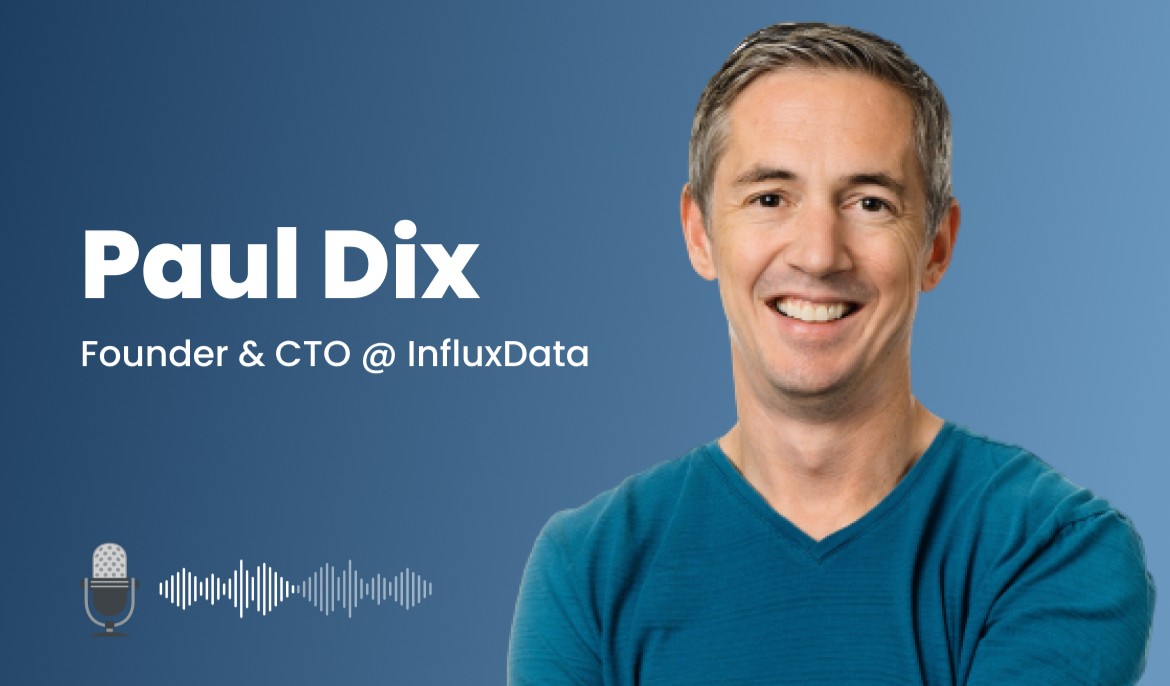Sustaining multi-phase, long-term tech transformation
with Paul Dix
November 29, 2022
ABOUT PAUL DIX
Paul (@PaulDix) is the creator of InfluxDB. He has helped build software for startups, large companies, and organizations like Microsoft, Google, McAfee, Thomson Reuters, and Air Force Space Command. He is the series editor for Addison Wesley’s Data & Analytics book and video series. In 2010 Paul wrote the book Service Oriented Design with Ruby and Rails. In 2009 he started the NYC Machine Learning Meetup. Paul holds a degree in computer science from Columbia University.
"What I need is a small team of focused people who are on board, who can be focused on getting this done and we'll prove it out as we go.
And I think the mistake I made with the 2.0 cloud product was we got way too many of people involved way too quickly, right? I think for the initial phases of project, it's actually advantageous to have a smaller team.
-Paul Dix
Interested in joining an ELC Peer Group?
ELCs Peer Groups provide a virtual, curated, and ongoing peer learning opportunity to help you navigate the unknown, uncover solutions and accelerate your learning with a small group of trusted peers.
Apply to join a peer group HERE: sfelc.com/peerGroups
SHOW NOTES:
- The history behind InfluxDB & its multi-phase, long-term transformation (1:53)
- InfluxDB’s first transformational phase featuring time series data (5:48)
- Phase 2.0 & shifting to a cloud-first delivery model (7:50)
- Challenges & opportunities faced in the current phase of InfluxDB (9:31)
- How Paul decided it was time to take the company to the next level (11:38)
- Making a bet on Rust (14:25)
- Why making an early announcement helped push Phase 3.0 forward (16:02)
- Strategies for identifying the right people for your eng team (19:06)
- How to optimize community insights when tailoring your vision (21:56)
- Tips for resolving disagreements between eng team members (24:45)
- Frameworks for executing long-term vision & achieving alignment (26:21)
- Processes for integrating other teams into an org’s re-architecture (29:55)
- The impact of Conway’s Law on team structure & open-source software (32:07)
- Considerations for managing large, open-source projects (36:40)
- Rapid fire questions (37:56)
LINKS AND RESOURCES
- “The Happiness Hypothesis” by Jonathan Haidt - Each chapter is an attempt to savor one idea that has been discovered by several of the world’s civilizations - to question it in light of what we now know from scientific research, and to extract from it the lessons that still apply to our modern lives.
- “The Fate of Rome” by Kyle Harper - How devastating viruses, pandemics, and other natural catastrophes swept through the far-flung Roman Empire and helped to bring down one of the mightiest civilizations of the ancient world



